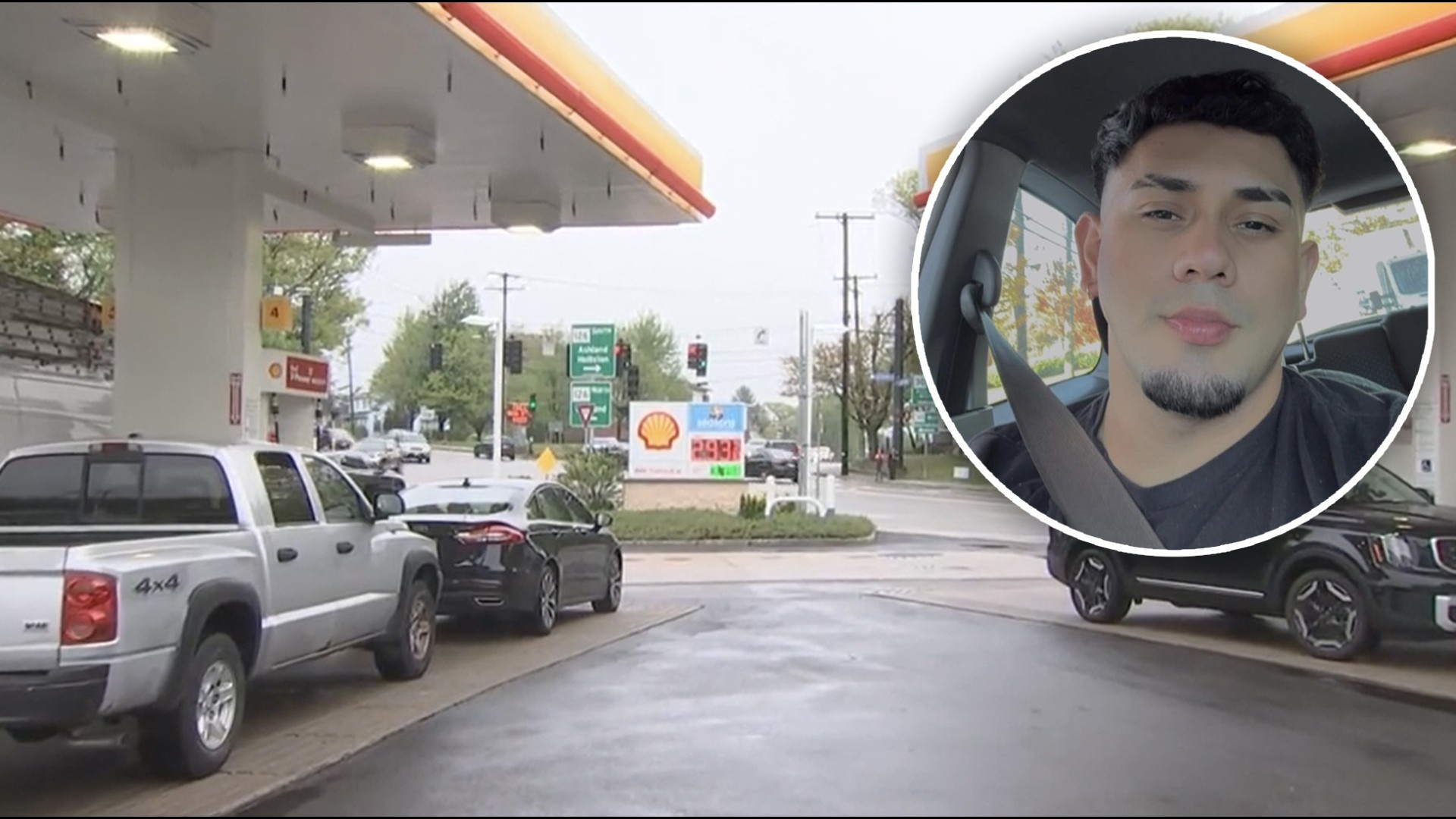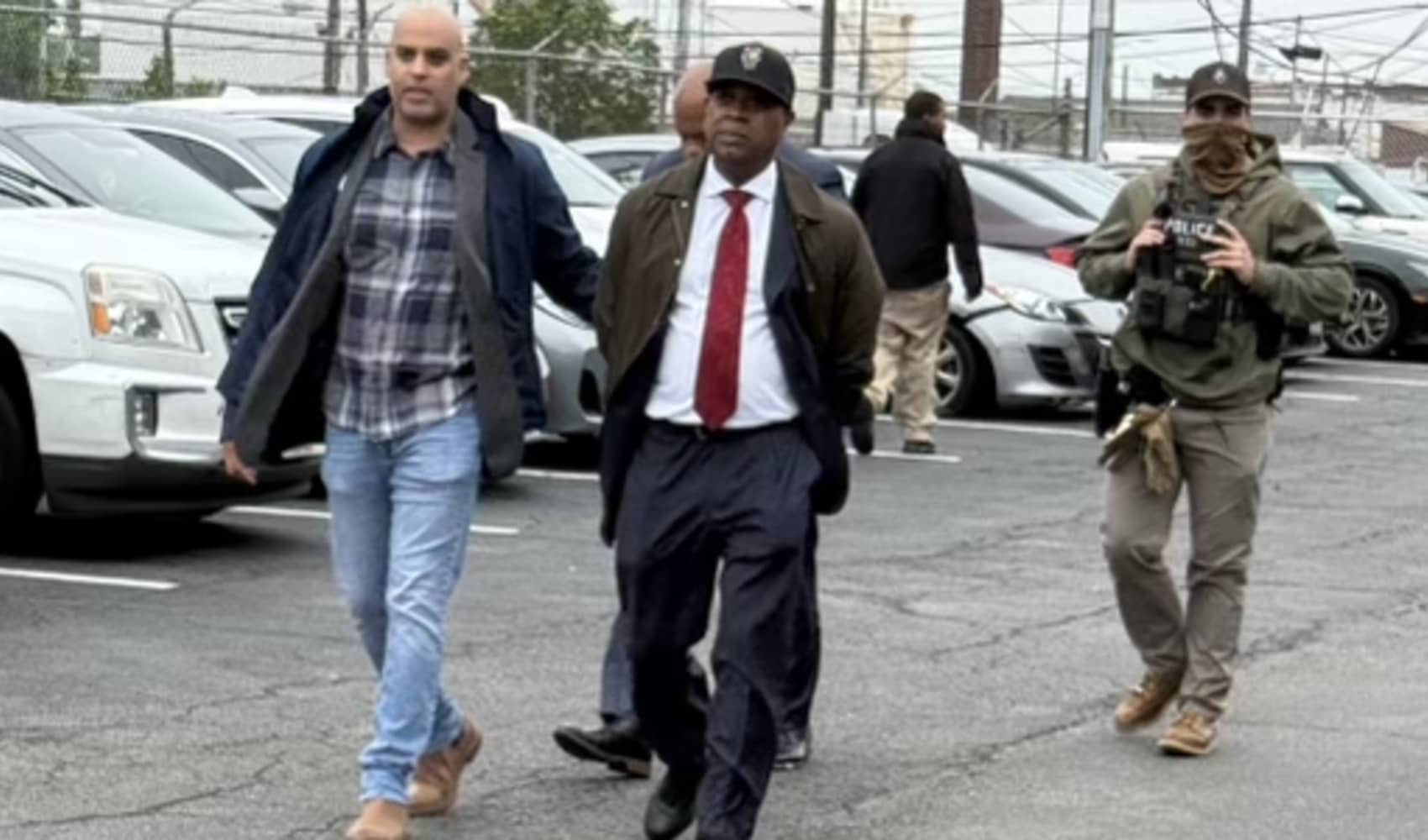ICE Detains Man with Clean Record: Family Fights Back!
Framingham Family in Uproar: ICE Detains Man with Clean Record
Introduction: A Family's Nightmare in Massachusetts
Imagine this: you're sending your loved one off to work, just like any other Monday morning. Then, a few hours later, you get a call that turns your world upside down. That’s exactly what happened to the Orellana family in Framingham, Massachusetts. Daniel Orellana, a 25-year-old Guatemalan man with no criminal record, was detained by ICE agents at a local gas station. How would you react? The details surrounding Daniel's detention are sparking outrage and raising serious questions about ICE's practices. Let’s delve into this developing situation.
The Arrest: Dawn Raid at the Gas Station
The incident occurred at approximately 6 a.m. at a Shell gas station in Framingham. Daniel was reportedly on his way to work when he was intercepted by ICE patrols. It's a scene right out of a movie, isn't it? But this isn't fiction; this is reality for the Orellana family. To think, a routine commute turned into a nightmare scenario.
The Father's Plea: "It's Not Fair!"
“It’s not fair that he’s going through this and being treated like a criminal,” exclaimed Arquimedes Orellana, Daniel’s father. His words resonate with the pain and frustration of a parent witnessing their child's suffering. Can you imagine the helplessness he must feel? It highlights the emotional toll that immigration enforcement can take on families. The injustice of the situation is amplified by the fact that Daniel has no prior criminal record.
The Question of Mistaken Identity: A Case of "Are You This Person?"
According to Arquimedes Orellana, ICE agents approached Daniel and directly asked, “Are you this person?” This begs the question: Who were they looking for? Was Daniel a victim of mistaken identity?
"I Don't Know Him": Daniel's Response
Daniel reportedly responded, “I’m not that person. I don’t know him… I don’t know who he is, I don’t know what you’re talking about. I’m going to work right now, and let me answer my..." The truncated statement suggests Daniel was cut off mid-sentence. This raises serious concerns about due process and whether Daniel was given a fair chance to explain himself.
No Criminal Record: A Life Lived by the Rules
The central point of contention here is that, according to his family, Daniel has absolutely no prior police or criminal record. He’s been living a life by the rules. It seems like a textbook example of someone who's trying to contribute to society. So, why was he targeted? This is the question that's fueling the family’s demand for justice.
Framingham: A Town Grappling with Immigration Issues
Framingham, Massachusetts, like many other towns across the US, is grappling with complex immigration issues. This incident highlights the tensions that can arise between federal immigration enforcement and local communities. It's a reminder that immigration isn't just a policy issue; it's about real people and their families.
ICE's Response: Silence and Scrutiny
As of now, ICE has not issued a public statement regarding Daniel Orellana’s detention. This silence only amplifies the family's concerns and increases the scrutiny surrounding ICE’s actions. Transparency is crucial in these situations to ensure accountability and public trust.
The Family's Fight for Justice: A Call to Action
The Orellana family is not backing down. They are actively seeking legal representation and advocating for Daniel's release. Their fight is a testament to the unwavering love and determination of family members. This underscores how deeply immigration policies affect the families of immigrants and their broader communities.
Legal Recourse: What Options Does the Family Have?
The family has several legal avenues they can pursue, including:
- Filing a writ of habeas corpus to challenge the legality of Daniel's detention.
- Seeking an injunction to prevent his deportation.
- Contacting their elected officials to raise awareness of the case.
Community Support: A Beacon of Hope
The Orellana family is not alone in their struggle. Local community organizations and activists are rallying to support them. This collective action highlights the power of community solidarity in the face of injustice. This kind of support can make a significant difference in helping families navigate the challenges of immigration enforcement.
Immigration Policies Under the Microscope: A National Conversation
Daniel's case is contributing to a broader national conversation about immigration policies and enforcement practices. It raises questions about who is being targeted, the impact on families, and the fairness of the system. Are we truly living up to our values of justice and due process?
The Impact on the Immigrant Community: Fear and Uncertainty
Incidents like this can create a climate of fear and uncertainty within the immigrant community. People may be afraid to go to work, take their children to school, or even leave their homes. This chilling effect undermines the social fabric of our communities. It's essential to foster trust and ensure that everyone feels safe and respected.
The Role of Media: Amplifying the Family's Voice
Media coverage plays a crucial role in amplifying the Orellana family's voice and bringing attention to their plight. It's essential that the media reports on these cases fairly and accurately, providing a platform for all perspectives. Media attention can also help to hold government agencies accountable and ensure that due process is followed.
Moving Forward: Seeking Solutions and Promoting Fairness
The situation with Daniel Orellana underscores the urgent need for comprehensive immigration reform. We need policies that are fair, humane, and that reflect our values as a nation. This involves:
- Creating a pathway to citizenship for undocumented immigrants who have been contributing to our society.
- Reforming our enforcement practices to prioritize public safety and focus on serious criminals.
- Providing due process and legal representation to all immigrants, regardless of their status.
Conclusion: A Call for Justice and Humanity
Daniel Orellana's detention is a stark reminder of the human cost of immigration enforcement. His story, a 25-year-old man with no criminal record apprehended at a gas station, illustrates a system that many believe can be unjust. The Orellana family's fight for justice serves as a powerful call to action, urging us to examine our immigration policies and ensure they are fair, humane, and aligned with our values. The time to demand justice for Daniel and countless others in similar situations is now. We must strive for a system that upholds due process and treats all individuals with dignity and respect.
Frequently Asked Questions (FAQs)
Here are some frequently asked questions about ICE detentions and immigration law:
- What rights do I have if ICE approaches me? You have the right to remain silent and the right to an attorney. Do not answer any questions without consulting with a lawyer first. You also have the right to refuse a search of your home unless ICE has a warrant signed by a judge.
- What is a writ of habeas corpus? It's a legal action that challenges the legality of a person's detention. If a court finds that a person is being held unlawfully, it can order their release.
- Can ICE detain someone without a criminal record? Yes, ICE can detain individuals based on suspected immigration violations, even if they have no criminal record. However, the legality of such detentions can be challenged in court.
- What should I do if a family member is detained by ICE? Contact an immigration attorney immediately. They can advise you on your legal options and help you navigate the complex immigration system. You can also reach out to local community organizations that provide support to immigrant families.
- How can I support families affected by ICE detentions? You can donate to organizations that provide legal and financial assistance to immigrant families. You can also volunteer your time to help these organizations with their work. Finally, you can advocate for immigration reform by contacting your elected officials and urging them to support policies that are fair and humane.


